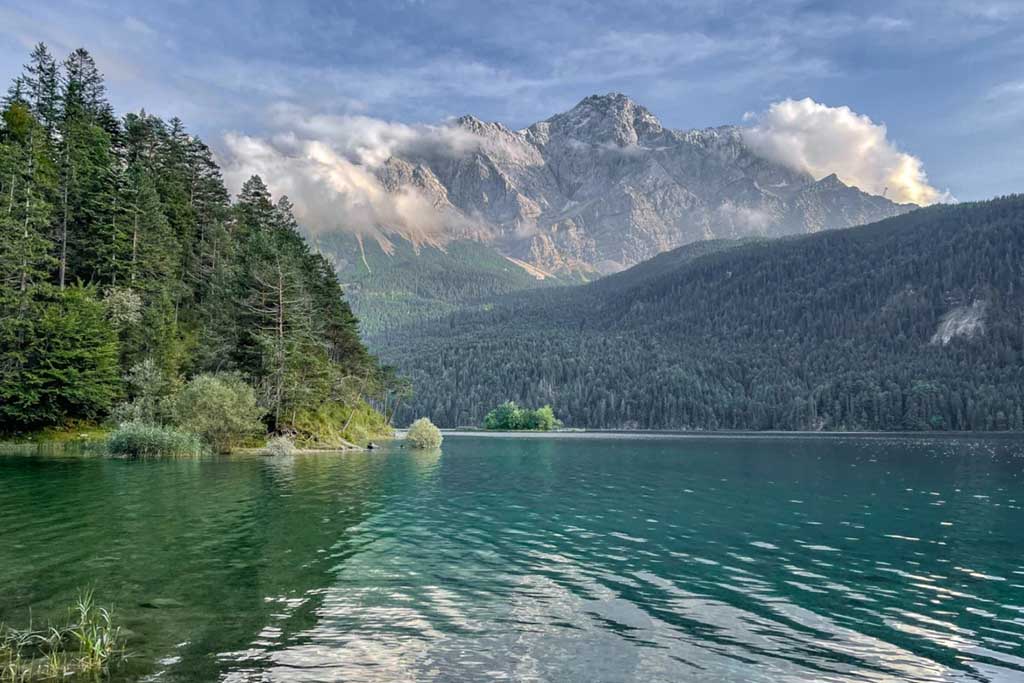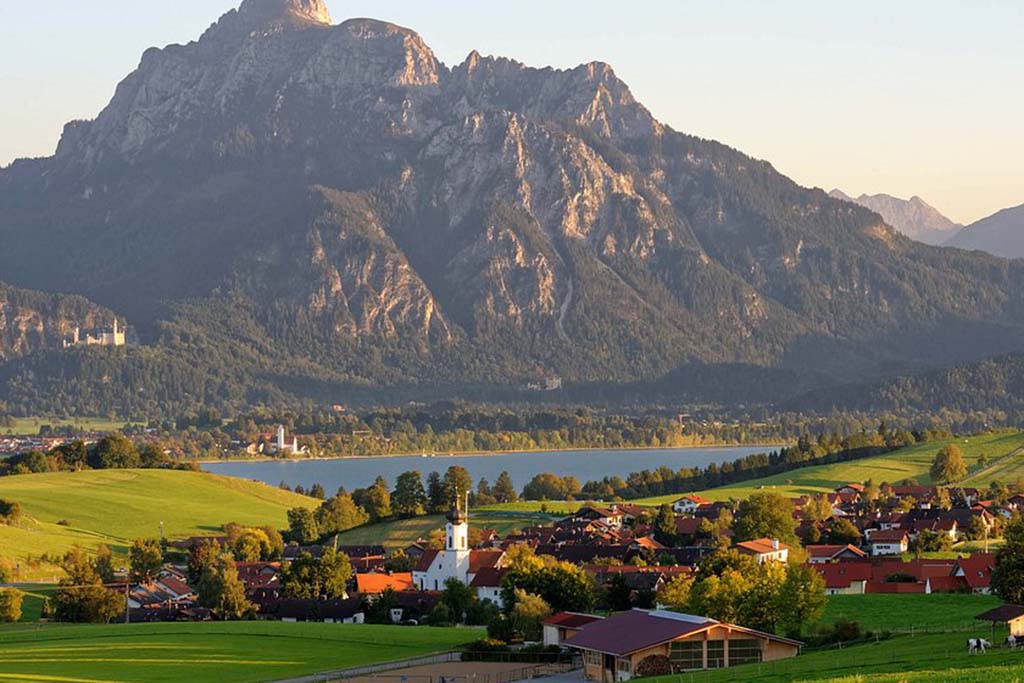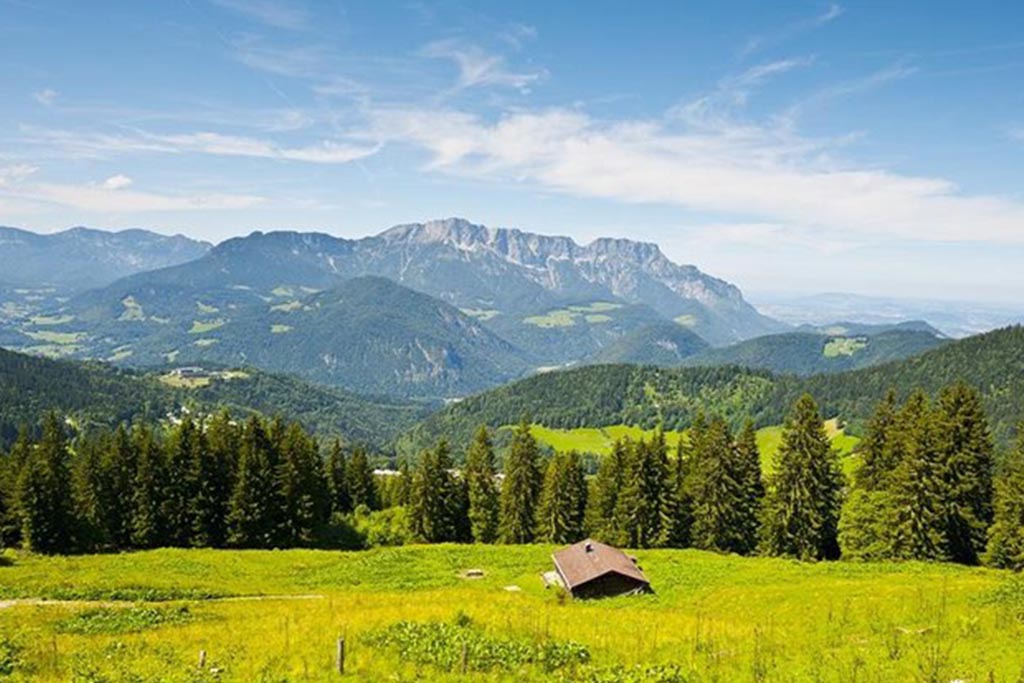
Bavaria, located in the southern part of Germany, is a magical region that attracts countless tourists with its rich cultural heritage, enchanting landscapes, and irresistible cuisine. Whether you’re into romantic small towns, eager to explore historical landmarks, or wish to immerse yourself in nature, Bavaria can fulfill all your expectations for a perfect vacation.
1. Clarify Your Travel Goals: What Does Your Perfect Vacation Look Like?
Before planning any trip, it’s essential to clarify what your travel goals are. Bavaria offers a wide range of experiences—are you looking to immerse yourself in the region’s history and culture, or do you prefer close contact with nature, or perhaps you want to explore local food and drinks? This will determine the details of your itinerary.
For example:
- Cultural Exploration: If you’re interested in history and culture, cities like Munich, Neuschwanstein Castle, and Augsburg are a must-visit.
- Nature Exploration: If you’re a nature lover, the Alps, Lake Constance, and the beautiful spots along the Danube River will be your best destinations.
- Food Tour: If you want to taste authentic German cuisine, be sure to spend some time in local bars and restaurants enjoying classic Bavarian dishes like roast pork knuckles, sauerkraut, and German beer.
2. Choose the Best Time to Travel
Bavaria is charming all year round, but each season offers its unique appeal. To ensure a more enjoyable trip, it’s crucial to choose the right time for your visit.
- Spring (March-May): Spring is the low tourist season in Bavaria, with gradually warming temperatures and fewer visitors, allowing you to enjoy quieter attractions.
- Summer (June-August): Summer is the peak tourist season, with warm temperatures, ideal for hiking and lake activities, especially popular with families and couples.
- Autumn (September-November): Autumn is perfect for a food tour, especially with wine and beer festivals like Oktoberfest in Munich. Additionally, the natural scenery is at its most majestic.
- Winter (December-February): Winter is a paradise for ski and winter sports enthusiasts. If you enjoy skiing or spa retreats, Bavaria in winter will offer you a completely different experience.
3. Choose the Right Mode of Transportation
Transportation is an essential part of any trip, and Bavaria’s public transport system is very convenient. However, selecting the right mode of transport will make your trip more efficient and comfortable.
- Flights: How to Book Your Flight Munich is Bavaria’s capital and a major aviation hub. You can fly directly to Munich Airport from cities around the world. Booking your flight in advance will help you get better prices.
- Self-Driving: The Freedom and Flexibility of Exploring Bavaria If you prefer to travel by car, Bavaria has an excellent road network. Driving is a great option, and you can easily start from Munich and drive through the scenic Alpine landscapes or visit other German cities. If you decide to rent a car, make sure to familiarize yourself with German traffic rules and parking regulations.
- Public Transportation: Trains and Buses Bavaria’s public transportation system is well-developed, and Germany’s train system, in particular, is very efficient. If you don’t plan to drive, taking a train is a great option. Deutsche Bahn (German Railways) offers high-speed trains connecting all major cities and attractions across Bavaria.
4. Choose the Right Accommodation
Bavaria offers a wide range of accommodation options, from luxury hotels to family-friendly apartments. When choosing where to stay, it’s essential to consider your budget, itinerary, and travel preferences.
- Luxury Hotels If you enjoy a high-end experience, Bavaria has many five-star hotels and luxury resorts, such as the Bavarian Hotel in Munich and luxury hotels near Neuschwanstein Castle. These hotels provide top-notch amenities, such as spas, private concierge services, and fine dining restaurants.
- Apartments and Guesthouses For more privacy and freedom, renting an apartment or staying in a guesthouse is an excellent option. You can cook your own meals and experience local life. Many such options are available around cities and attractions in Bavaria, making it ideal for solo travelers or families.
- Resorts and Villas If you plan to spend your vacation in nature, resorts and villas are ideal choices. For instance, around the Alps, there are numerous luxury resorts offering skiing, spas, and other activities, perfect for couples, families, or group trips.

5. Plan Your Travel Itinerary: From Munich to the Alps
Based on your travel goals, it’s crucial to organize a reasonable itinerary. Here’s a suggested itinerary for most travelers visiting Bavaria:
Day 1: Munich – The Heart of Bavaria
Start your trip in Munich. This city has a deep cultural vibe, and the Old Town is a great place to learn about German history and culture. You can visit famous sites like Marienplatz, the Munich Residenz, and the English Garden. Don’t forget to dine in a traditional restaurant to taste Bavarian dishes and enjoy local beer.
Day 2: Neuschwanstein Castle – A Romantic Symbol of Bavaria
Neuschwanstein Castle, located near Füssen, is one of Bavaria’s most iconic landmarks. Its beauty and romantic allure have captivated thousands of visitors. You can explore the castle’s interiors and enjoy its unique architecture and stunning surrounding scenery.
Day 3: The Alps – Skiing and Hiking
If you are a ski enthusiast, the Alpine ski resorts in Bavaria are ideal for your trip. Even in summer, the Alps are perfect for hiking and mountaineering.
Day 4: Lake Constance – A Peaceful Lakeside Journey
Lake Constance, located at the intersection of Germany, Switzerland, and Austria, is a beautiful lake. You can stroll along the shores or take a boat tour to enjoy the serene natural beauty.
Day 5: Departing Munich
End your Bavarian adventure by returning to Munich. Do some last-minute shopping or visit any final attractions before preparing for your return journey.
6. Travel Tips
Language:
Although German is the official language of Bavaria, don’t worry too much about language barriers. The majority of people working at tourist sites, hotels, and restaurants speak at least basic English, especially in larger cities like Munich. In smaller towns, however, it may be useful to learn a few basic German phrases such as “Guten Morgen” (Good Morning) or “Sprechen Sie Englisch?” (Do you speak English?). While most people in Bavaria are friendly and eager to help, knowing a bit of the local language can certainly enrich your experience. You’ll find it easier to navigate daily interactions and create a more authentic connection with the locals.
Currency:
Germany uses the Euro (€), so be sure to have enough cash on hand, especially when visiting rural areas or smaller towns, where card payments might not always be accepted. ATMs are available in most places, but you might encounter certain establishments, particularly family-owned ones, that only accept cash. It’s always a good idea to carry some euros with you for small purchases, like snacks, souvenirs, or tips. Most cities have currency exchange kiosks, but these can often charge higher fees than ATMs, so withdrawing cash from your bank card can be more cost-effective.
Additionally, don’t forget to notify your bank of your travel plans to avoid any issues with your debit or credit cards while abroad. Many establishments also accept contactless payments, so if you have a contactless card or use mobile payments like Apple Pay, you’ll find it convenient in many areas.

Clothing Advice:
The weather in Bavaria can be unpredictable, especially in the mountainous regions, so packing accordingly is essential. During summer, temperatures can be quite warm, but as you climb in altitude, they can drop significantly, even on the same day. If you’re planning on hiking in the Alps or visiting scenic viewpoints, make sure to wear comfortable, durable hiking shoes. These will ensure you can enjoy all of Bavaria’s beautiful natural spots without discomfort.
Pack layers of clothing, including a light waterproof jacket, as rain showers can occur unexpectedly, particularly in the mountainous areas. A warm fleece or sweater is recommended, even during the warmer months, for cooler evenings or higher altitudes. In winter, temperatures can drop below freezing, and if you’re planning to ski or visit winter resorts, make sure to pack thermal wear, snow boots, and other appropriate gear for cold weather.
Electrical Adapters:
Germany uses the standard European two-prong plug (Type C and Type F) with a voltage of 230V and a frequency of 50Hz. If you’re traveling from outside of Europe, make sure to bring a travel adapter for your electronics. Power converters might be necessary if your devices are not compatible with European voltage.
Making the Most of Your Bavarian Adventure
Bavaria is a region that truly offers something for everyone, from its rich cultural heritage and medieval castles to its breathtaking natural landscapes and world-renowned food and drink. Whether you’re hiking in the Alps, exploring charming towns, or enjoying the lively atmosphere of Munich, each corner of Bavaria has its own unique charm.
When planning your trip, take the time to define your travel goals and select the best time to visit based on your preferences. Don’t forget to consider how you’ll get around, the accommodations that best suit your needs, and, most importantly, the activities that will make your journey unforgettable. From the historical grandeur of Neuschwanstein Castle to the serene beauty of Lake Constance, Bavaria offers a treasure trove of experiences to discover.
With a little preparation and an open mind, your Bavarian vacation will undoubtedly be an adventure full of memories. The region’s perfect blend of tradition and modernity, combined with its warm hospitality, will leave you enchanted. So pack your bags, immerse yourself in the Bavarian spirit, and enjoy all the incredible experiences this unique destination has to offer.